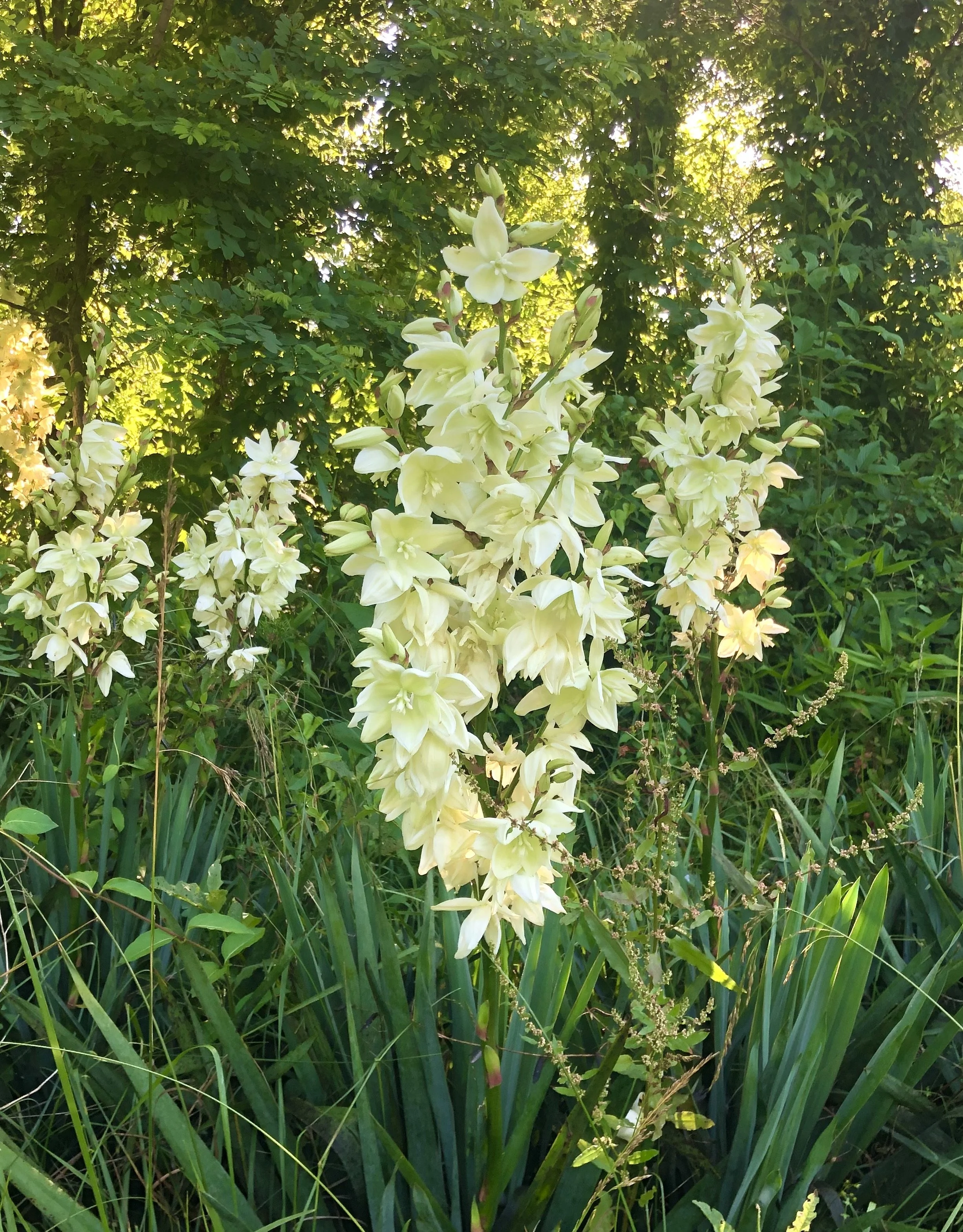Yucca
Yucca growing wild in the Eastern TN hills. Image by Kanoelani Achi.
Yucca- Yucca filamentosa
Yucca is a native plant to the southeastern part of North America and is commonly found in the Appalachian Hills of eastern Tennessee. Part of the Agavaceae family, Yucca is known for its sharp and fibrous leaves, which grow in dense clumps. Yucca is drought tolerant and is a good eco-friendly landscape option for areas prone to drought. It is also an important wildlife habitat & resource for pollinating insects and small critters looking for shelter. Yucca contributes to biodiversity and is a useful plant for conservation efforts.
Caution: Not recommended for use during pregnancy. Yucca contains saponins that can be toxic to pets, especially cats & dogs.
Up close and personal with Yucca leaves. Image by Kanoelani Achi.
Yucca- Traditional Uses
Native American tribes used various parts of the Yucca plant for fiber, food, and medicine. Yucca plants were commonly used as boundary markers for properties & used by some African cultures as grave markers in cemeteries & to ward off evil spirits from their homes. The leaves of the Yucca plant were used by the Cherokee to create baskets, clothing, and sandals. The fibers make a very beautiful and strong cordage that is similar to hemp rope. The Cherokee pounded the Yucca root to make soap and to intoxicate fish. An infusion of the root was also used to treat skin ailments and diabetes. Archaeologists use Yucca as a living heirloom indicator of historic homesteads and gravesites that no longer have above ground remnants.
Yucca flowers in a basket. Image by Kanoelani Achi.
Yucca- Herbal Uses
Yucca root is astringent, slightly acrid, and soapy. It is cooling to the body and is used for its antioxidant, antispasmodic, and anti-inflammatory properties. Yucca is used to help with osteoarthritis and rheumatoid arthritis. According to Dr. Sharol Marie Tilgner, “it is believed that Yucca may work on arthritis by correcting the balance of intestinal bacteria, eliminating bad bacteria and normalizing good bacteria, leading to a reduction in inflammation. The saponins of some species also have been shown to reduce protozoa in the gut and ammonia formation.” Yucca was also used as an extract for its potential health benefits and for help lowering cholesterol. Yucca flowers are pleasant tasting and have various culinary uses.
Yucca flower essence offers confidence and courage to shine brightly. It helps release guilt and regret, assists in forgiveness, and teaches compassion.
Sources:
Yucca - Yucca Spp. Monograph
https://youarethehealer.org/book-store/herb-books-by-dr-sharol-tilgner/
The Ultimate Guide: All About Yucca – Benefits, Uses & More
https://seedstoseedlings.com/all-about-yucca/
#PlantoftheMonth: Yucca
https://mcclungmuseum.utk.edu/2021/02/25/plantofthemonth-yucca/
YUCCA FLOWER ESSENCE
https://www.whisperingrootsapothecary.com/products/yucca-flower-essence





